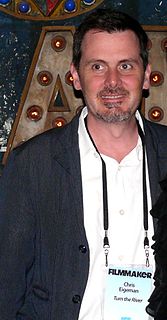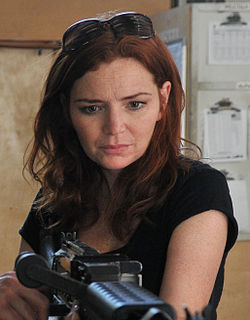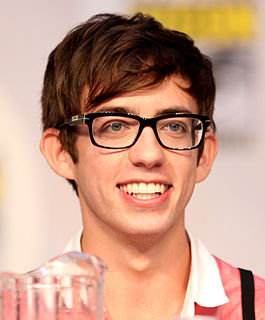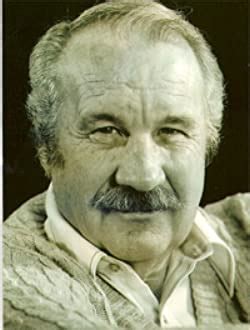A Quote by Lisa Joy
You have to be very specific with the suggestions of how you want to show things, not just with dialogue but also place and mood. I write all of that as very vivid guidelines so directors can come in and do what they will with them.
Related Quotes
Very, that show is crazy. It was like doing finals every week. It was interesting. I really learned a lot. The dialogue is so technical. I was so impressed watching the other actors and how they managed, so I studied them. And I was blown away thinking: "How do they do that? How do they put that extra spin on the complicated dialogue to make it interesting?
I always feel like I learn more from directors that are new, and I also am able to understand how much I really do know about filmmaking when you work with directors that maybe don't have as much experience, so you're able to sort of take the reins. I know how to do these movies, I've done so many of them and have learned from new directors who are usually willing to try new things and are more open to allowing someone like me to kind of come in and just do what I know how to do.
I just adored Peter Medak, the director. He's such a character, but he was so much fun. Some directors come in and they truly get angry about things.Peter was still in a fantastic mood. He's a delightful person. He threw a big party at the end of the pilot, which was so sweet. And his wife is an opera singer. He's just a very warm, crazy beautiful individual.
I just feel like TV takes more risks than film. Film has gotten very safe: it's very compartmentalized about what type of things will be successful. And whereas in TV, since all these new platforms opened, they're saying to writers, go out there, write the most different show that you can write. Write something that's really original and different.
The Psalms are much more than poetry. Many of them bear the title, Maskil, or teaching psalm. They are thus intended to instruct the mind as well as to encourage the heart. They are designed not only to reflect a mood, but to show us also how to handle that mood; how to escape from depression or how to balance exaltation with wisdom.






































